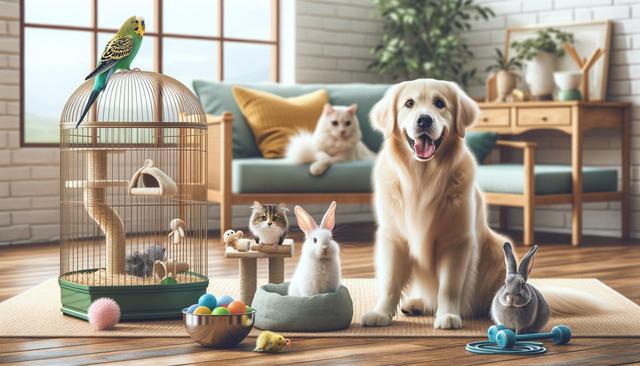
Enhancing Senior Wellbeing Through Pet Companionship Resources
The Emotional Benefits of Pet Companionship for Seniors
For many seniors, pets are more than just animals—they are loyal friends and daily sources of emotional support. As people age, they may face increased isolation due to retirement, mobility challenges, or the loss of loved ones. Pets, particularly dogs and cats, can help alleviate these feelings by providing consistent companionship and unconditional affection. Studies have shown that simply petting an animal can lower blood pressure, reduce stress, and boost serotonin levels. This emotional uplift can be crucial in helping seniors maintain a positive outlook and greater mental stability.
Additionally, caring for a pet gives seniors a sense of purpose and routine. Feeding, grooming, and walking a pet creates a daily structure that many older adults find comforting. This responsibility can also promote better self-care and increased physical activity, both of which are essential for maintaining good health and independence later in life.
Choosing the Right Pet for Senior Living
When considering pet companionship, it’s important for seniors to choose an animal that suits their lifestyle, mobility, and living arrangements. Not all pets require the same level of care, and finding the right match can significantly enhance the experience. For instance, small dog breeds or older cats may be suitable for seniors who prefer quiet, low-maintenance companions. In contrast, active seniors might enjoy the routine of walking a dog or playing with a more energetic animal.
Key considerations when selecting a pet include:
- Energy levels and exercise needs of the pet
- Size and space requirements
- Grooming and medical care needs
- Temperament and compatibility with the senior’s lifestyle
Visiting local shelters or rescue organizations is an excellent way to find a pet that matches these criteria. Many shelters also offer adoption counseling to help seniors make informed choices based on their capabilities and preferences.
Community Resources Supporting Senior Pet Ownership
Numerous community programs and nonprofit organizations are dedicated to making pet companionship accessible and sustainable for seniors. These resources often provide support with pet adoption, veterinary care, and even temporary foster solutions during times of hospitalization or mobility challenges. Some senior centers and aging services departments collaborate with animal welfare groups to offer pet food assistance, discounted medical care, and volunteer dog-walking services.
Here are a few types of helpful services often available:
- Pet adoption programs specifically for older adults
- Subsidized or low-cost veterinary clinics
- Mobile grooming services for seniors with limited transportation
- Meal and supply delivery for pet food and hygiene products
These initiatives are designed to remove barriers and help seniors maintain the rewarding relationship they have with their pets, regardless of financial or physical limitations.
Therapy and Service Animals for Emotional Support
While traditional pets offer companionship, some seniors benefit more from certified therapy or service animals. These animals undergo special training to provide emotional or physical assistance, making them particularly valuable for individuals with certain health conditions or disabilities. For example, therapy animals are often brought into assisted living facilities to boost morale and social interaction, while service animals can help with mobility, hearing, or other tasks specific to the owner’s needs.
Benefits of therapy and service animals include:
- Improved emotional resilience and reduced anxiety
- Greater independence through assistance with daily tasks
- Enhanced social interaction and reduced feelings of isolation
Accessing these animals typically involves working with certified organizations that match trained animals with individuals based on their needs. While there may be waiting lists or application processes, the long-term benefits for eligible seniors can be meaningful and life-enhancing.
Tips for Maintaining a Healthy Pet Relationship
Once a senior has welcomed a pet into their life, maintaining that relationship requires thoughtful planning and ongoing care. It’s important to consider how changes in health or lifestyle might affect the ability to care for the animal. Regular vet visits, proper nutrition, and daily interaction are key components of a healthy pet dynamic. Seniors should also plan for contingencies, such as having a trusted friend or family member who can assist with pet care when needed.
Useful strategies include:
- Setting reminders for feeding and medication schedules
- Creating a pet care plan in case of emergencies
- Using pet-safe mobility aids or accessories to ease physical tasks
- Joining local senior or pet owner groups for social support and advice
With the right preparation and support, seniors can enjoy a long-lasting, fulfilling relationship with their pets that enhances overall quality of life.
Conclusion: Empowering Seniors Through Pet Companionship
Pet companionship offers seniors meaningful emotional support, daily purpose, and a deeper sense of connection. With access to the right resources and community support, older adults can experience the joys of pet ownership in a way that complements their lifestyle and health needs. Whether through traditional pets, therapy animals, or community programs, these relationships can play a vital role in promoting well-being and happiness in later life.


